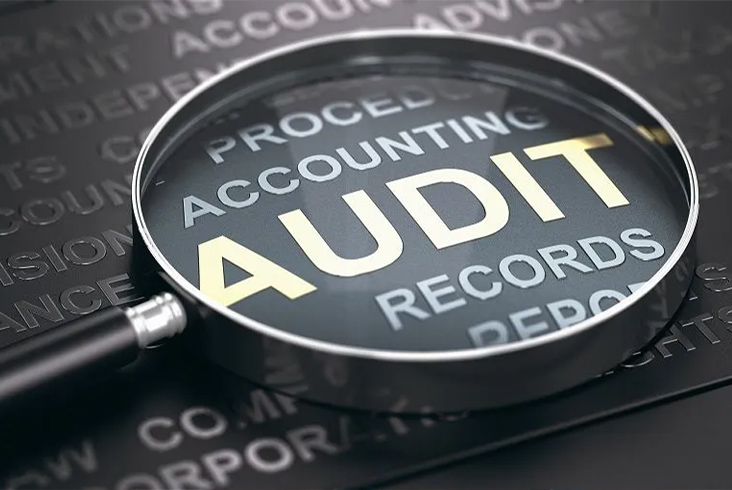Frequently Answers & Questions
Here are the top 20 frequently asked questions (FAQs) about accounting, auditing, tax filings, and compliance maintenance in India, categorized according to turnover limits for various types of entities:
1. Private Limited Companies
1. What are the accounting requirements for a Private Limited Company with a turnover below ₹1 crore?
A: A Private Limited Company with a turnover below ₹1 crore must maintain proper books of accounts, prepare annual financial statements, and comply with accounting standards. An audit is still mandatory regardless of turnover.
2. How often must a Private Limited Company file its annual income tax returns?
A: A Private Limited Company must file its annual income tax return within 30 days from the end of the financial year or by the extended due date if granted by the Income Tax Department.
3. Is there a difference in compliance requirements for a Private Limited Company with turnover above ₹1 crore?
A: Companies with turnover above ₹1 crore must adhere to additional compliance requirements, such as more rigorous financial disclosures and potential quarterly tax audits. They also need to ensure adherence to GST and other regulatory requirements.
4. What are the audit requirements for a Private Limited Company?
A: All Private Limited Companies must undergo an annual statutory audit by a Chartered Accountant, irrespective of turnover, to ensure compliance with accounting standards and regulatory requirements.
2. Limited Liability Partnerships (LLPs)
5. What accounting requirements are there for an LLP with turnover below ₹40 lakhs?
A: LLPs with turnover below ₹40 lakhs must maintain accurate books of accounts and prepare financial statements annually, but they are not required to undergo an audit unless the turnover exceeds this limit.
6. Are there additional compliance requirements for LLPs with turnover above ₹40 lakhs?
A: Yes, LLPs with turnover above ₹40 lakhs are required to have their accounts audited by a Chartered Accountant annually and must comply with additional reporting and regulatory requirements.
7. How frequently should LLPs file their income tax returns?
A: LLPs must file their income tax returns annually, regardless of turnover, within the prescribed due date. They must also comply with quarterly TDS return filings if applicable.
3. Partnership Firms
8. What are the accounting and tax filing requirements for Partnership Firms with turnover below ₹1 crore?
A: Partnership Firms with turnover below ₹1 crore must maintain proper books of accounts and file annual income tax returns. They are not required to undergo an audit unless the turnover exceeds the limit.
9. Are there any special compliance requirements for Partnership Firms with turnover above ₹1 crore?
A: Partnership Firms with turnover above ₹1 crore must have their accounts audited annually by a Chartered Accountant and comply with additional tax reporting and regulatory requirements.
4. Sole Proprietorships
10. What are the accounting and tax filing obligations for Sole Proprietorships with turnover below ₹40 lakhs?
A: Sole Proprietorships with turnover below ₹40 lakhs must maintain basic accounting records and file annual income tax returns. They are not required to have their accounts audited.
11. Do Sole Proprietorships with turnover above ₹40 lakhs need to have their accounts audited?
A: Yes, Sole Proprietorships with turnover above ₹40 lakhs must have their accounts audited and file their income tax returns, along with complying with GST requirements if applicable.
5. Trusts
12. What are the accounting and compliance requirements for a Trust with annual income below ₹1 crore?
A: Trusts with annual income below ₹1 crore must maintain proper books of accounts and file annual income tax returns. They must also adhere to charitable trust regulations for tax-exempt status.
13. Do Trusts with income above ₹1 crore have additional compliance obligations?
A: Trusts with income above ₹1 crore must continue to maintain proper accounts, but they also need to comply with additional reporting requirements and potentially undergo audits depending on their activities and statutory requirements.
6. Section 8 Companies (Non-Profit)
14. What accounting and compliance requirements are there for Section 8 Companies with turnover below ₹1 crore?
A: Section 8 Companies with turnover below ₹1 crore must maintain proper books of accounts, prepare annual financial statements, and file annual returns with the Registrar of Companies. They must also adhere to regulations specific to non-profit organizations.
15. Are there special compliance requirements for Section 8 Companies with turnover above ₹1 crore?
A: Yes, Section 8 Companies with turnover above ₹1 crore must adhere to stricter compliance norms, including detailed reporting, audits, and compliance with the Companies Act, 2013.
7. Public Limited Companies
16. What are the accounting and compliance requirements for a Public Limited Company?
A: Public Limited Companies must maintain detailed financial records, conduct quarterly and annual audits, file quarterly financial statements with SEBI, and comply with extensive regulatory disclosures and reporting requirements.
17. Do Public Limited Companies need to comply with any additional tax filing requirements?
A: Yes, Public Limited Companies must file income tax returns annually, pay advance tax, and comply with additional tax reporting and disclosure requirements due to their public status.
8. General Compliance
18. What are the general compliance requirements for entities with turnover below the audit threshold?
A: Entities with turnover below the audit threshold must maintain accurate records, file annual tax returns, and comply with applicable GST regulations if their turnover exceeds the GST registration limit.
19. How does turnover impact the frequency of tax filings and audits?
A: Entities with higher turnover may face more frequent audits and additional reporting requirements. For instance, turnover thresholds determine whether an audit is mandatory and can influence the complexity of tax filings.
20. What are the consequences of non-compliance with accounting and tax regulations?
A: Non-compliance can lead to legal penalties, fines, and potential legal action by regulatory authorities. It may also result in reputational damage and financial implications, such as increased scrutiny and audits.






